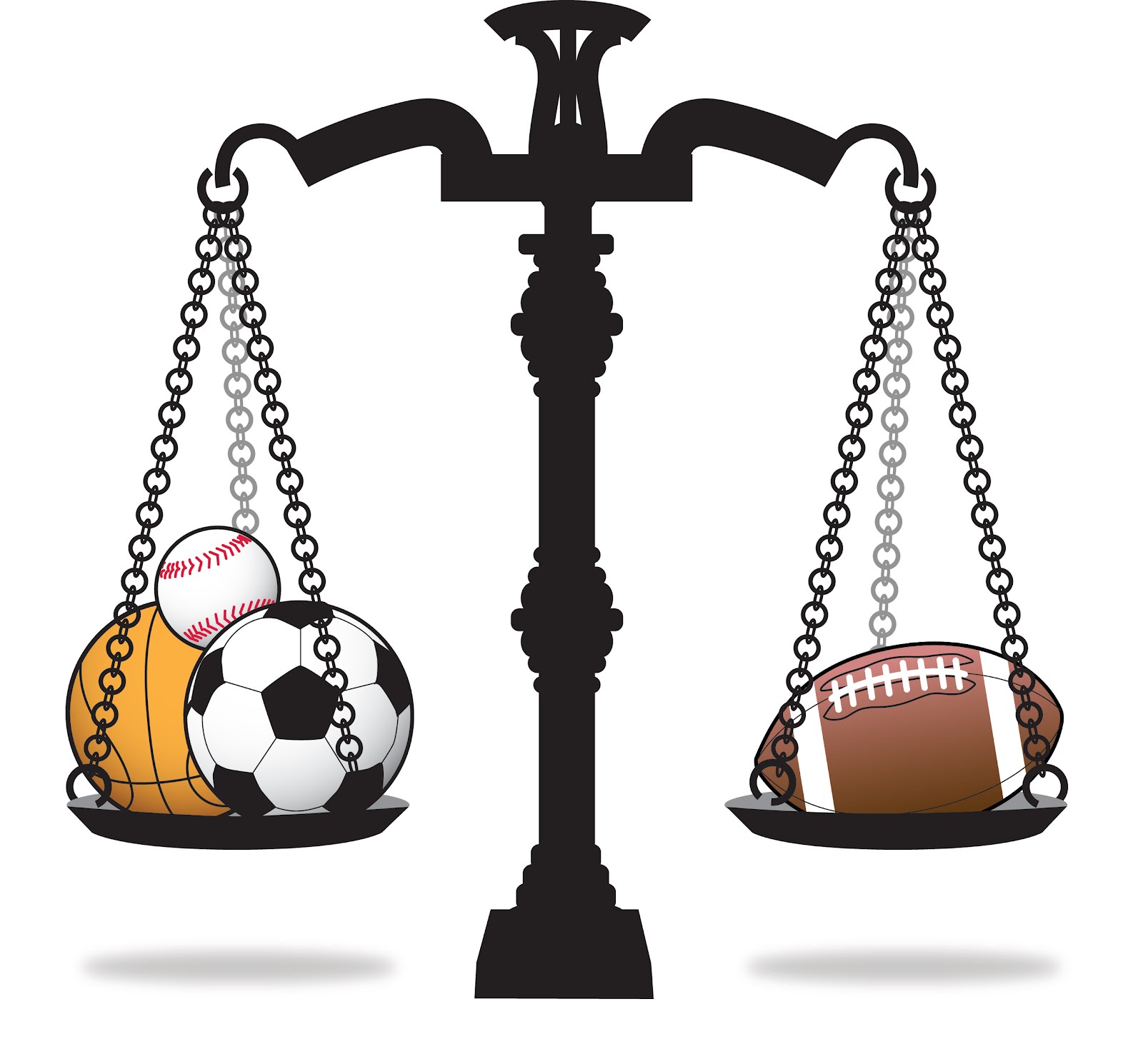
The
Sports Industry is fast becoming a growing industry which accommodates various
professional from all works of life. It is very pertinent to note that due to
the growing nature, it has become paramount to find a medium to regulate the
activities within the sector. Owing to this fact, legal professionals within
the industry have developed the legal framework that pertains to sports and the
developing issues that evolve from the sector.
Sports Industry is fast becoming a growing industry which accommodates various
professional from all works of life. It is very pertinent to note that due to
the growing nature, it has become paramount to find a medium to regulate the
activities within the sector. Owing to this fact, legal professionals within
the industry have developed the legal framework that pertains to sports and the
developing issues that evolve from the sector.
The
immense development of sports around the world cannot be over emphasized; talk
more of its impact in the progress of a nation.Football,for example is the first team sport in Spain by number of
practitioners, has become an important phenomenon that involves cultural,
social, economic and even political factors. Although it sounds like a cliché,
football is much more than two teams of eleven people running after a ball.[1]Sports has been recognized
as the only event which bring together all personalities; whether Black, Asian,
White or Australoid.
immense development of sports around the world cannot be over emphasized; talk
more of its impact in the progress of a nation.Football,for example is the first team sport in Spain by number of
practitioners, has become an important phenomenon that involves cultural,
social, economic and even political factors. Although it sounds like a cliché,
football is much more than two teams of eleven people running after a ball.[1]Sports has been recognized
as the only event which bring together all personalities; whether Black, Asian,
White or Australoid.
Historically,
sports was generally seen as a past time that didn’t require serious
formalization and regulation. For instance, when the ancient Olympic Games
started, there were limited rules and regulations binding the athletes and the
organizers. In the past few decades however, we have seen sporting activities
and tournaments become much more complex. These days there are events like the
World Cup and Olympic Games, African Cup of Nations (AFCON), sporting
federations like FédérationInternationale de Football Association (FIFA),
Confederation of African Football (CAF) and the American National Basket Ball
Association (NBA), players and agents all involved in complex web of
organizing, hosting and playing of games and tournaments. These days players
sign contracts, teams have relationships with the governing federations and the
governing federations have connections with the governments of each country.
These complexities have led to the growth and emergence of sports law and
practice[2]around the world without excluding
Africa.
sports was generally seen as a past time that didn’t require serious
formalization and regulation. For instance, when the ancient Olympic Games
started, there were limited rules and regulations binding the athletes and the
organizers. In the past few decades however, we have seen sporting activities
and tournaments become much more complex. These days there are events like the
World Cup and Olympic Games, African Cup of Nations (AFCON), sporting
federations like FédérationInternationale de Football Association (FIFA),
Confederation of African Football (CAF) and the American National Basket Ball
Association (NBA), players and agents all involved in complex web of
organizing, hosting and playing of games and tournaments. These days players
sign contracts, teams have relationships with the governing federations and the
governing federations have connections with the governments of each country.
These complexities have led to the growth and emergence of sports law and
practice[2]around the world without excluding
Africa.
A
distinct Forbes list just for highest paid athletes evidences the rising
popularity of the sports industry in the past few decades. The history of
sports extends as far back as the existence of people as purposive and
competitive. It simultaneously portrays as how the beliefs of the society have
changed and what changes have been brought in the rules and regulations. The
most eminent legal scholars have always unanimously held that law is essential
for a society because it serves as norms of thecode of conduct. It keeps the
community running. Without law, there would be a state of chaos where only the
fittest will survive. Similarly, even though law and sports often get
considered as “separate realms”; sports laws form the backbone of the
sports industry regulating the myriad of interlinking legal issues ranging from
anti-doping, gambling,andmatch-fixing to the choice of legal structure for
sporting organizations. Sports without the governance of a body of law can be
comparable to a football match without a referee; havoc. These laws have
an unusually well-developed pattern of globalized regulation and overlap
substantially with multitude areas of other distinct laws.[3]
distinct Forbes list just for highest paid athletes evidences the rising
popularity of the sports industry in the past few decades. The history of
sports extends as far back as the existence of people as purposive and
competitive. It simultaneously portrays as how the beliefs of the society have
changed and what changes have been brought in the rules and regulations. The
most eminent legal scholars have always unanimously held that law is essential
for a society because it serves as norms of thecode of conduct. It keeps the
community running. Without law, there would be a state of chaos where only the
fittest will survive. Similarly, even though law and sports often get
considered as “separate realms”; sports laws form the backbone of the
sports industry regulating the myriad of interlinking legal issues ranging from
anti-doping, gambling,andmatch-fixing to the choice of legal structure for
sporting organizations. Sports without the governance of a body of law can be
comparable to a football match without a referee; havoc. These laws have
an unusually well-developed pattern of globalized regulation and overlap
substantially with multitude areas of other distinct laws.[3]
One
of the major sports that emerged in Africa and has stood the test of time is
Football which has been evidenced in the great African players who have also
made their marks not just in Africa but in Europe. Amongst them are Austin
Okocha, KanuNwankwo, Samuel Etto, Didier Drogba, Rasheed Yekini et al.
of the major sports that emerged in Africa and has stood the test of time is
Football which has been evidenced in the great African players who have also
made their marks not just in Africa but in Europe. Amongst them are Austin
Okocha, KanuNwankwo, Samuel Etto, Didier Drogba, Rasheed Yekini et al.
The
development in African football has over the years been astonishing and rather
controversial. For the sports lawyer and other interested parties, this is a
remarkable opportunity to examine and critically analyze further the perennial
battle between state regulation and self-regulation. It is a well-established
fact that FIFA and CAF regulations prohibits attempts to seek remedies before
national courts in matters which is of purely sporting nature and by pursuing
this one risks violating specific FIFA regulations. The general position is
that national courts are usually reluctant to interfere with cases of a
sporting nature as the sports associations are private bodies as opposed to
public bodies. Courts cannot intervene in matters conducted by private
associations, however when a matter is presented in court against a private
association the courts will nevertheless go ahead with the hearing of the
matter.[4]
development in African football has over the years been astonishing and rather
controversial. For the sports lawyer and other interested parties, this is a
remarkable opportunity to examine and critically analyze further the perennial
battle between state regulation and self-regulation. It is a well-established
fact that FIFA and CAF regulations prohibits attempts to seek remedies before
national courts in matters which is of purely sporting nature and by pursuing
this one risks violating specific FIFA regulations. The general position is
that national courts are usually reluctant to interfere with cases of a
sporting nature as the sports associations are private bodies as opposed to
public bodies. Courts cannot intervene in matters conducted by private
associations, however when a matter is presented in court against a private
association the courts will nevertheless go ahead with the hearing of the
matter.[4]

Oluwatobiloba Adesemowo
“Tobi is a tax and sports lawyer. He is currently a
management strategist at Lagos Tigers Football Club. He is also a tax associate
at SIAO partners. During his leisure, he loves to research on sports and tax
related issues.”
management strategist at Lagos Tigers Football Club. He is also a tax associate
at SIAO partners. During his leisure, he loves to research on sports and tax
related issues.”
Picture Credit – www.legaldesire.com
[1]http://en.people.cn/90001/90779/90871/7360151.html
last accessed on 2nd August, 2019.
[2]https://www.thelawyerschronicle.com/an-overview-of-sports-law-and-practice/
last accessed on 2nd August, 2019.
[3]http://www.mondaq.com/x/684982/Sport/Global+Overview+of+the+Sports+Law last accessed on 3rd August 2019.
[4]http://www.africansportslawjournal.com/Bulletin%201_2013_Majani_Osoro.pdf
last accessed on 3rd August, 2019.
